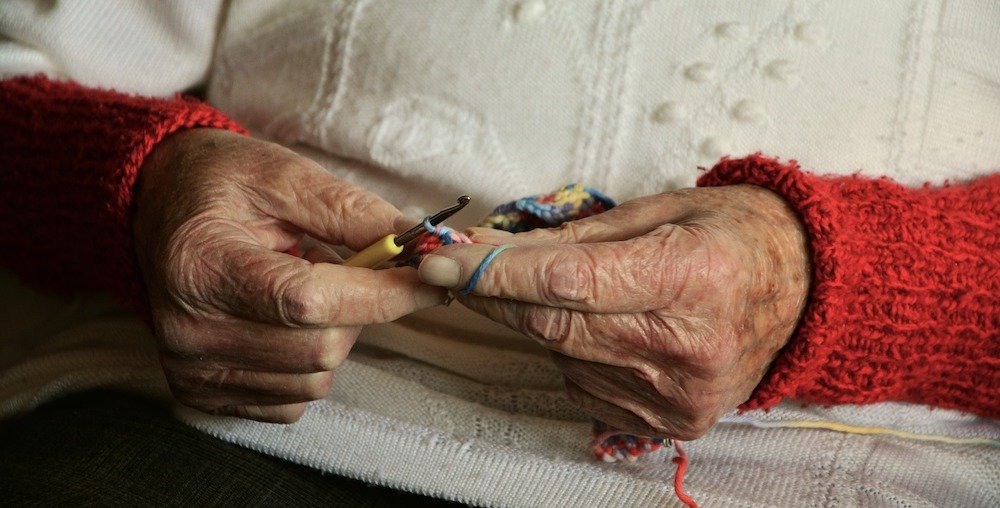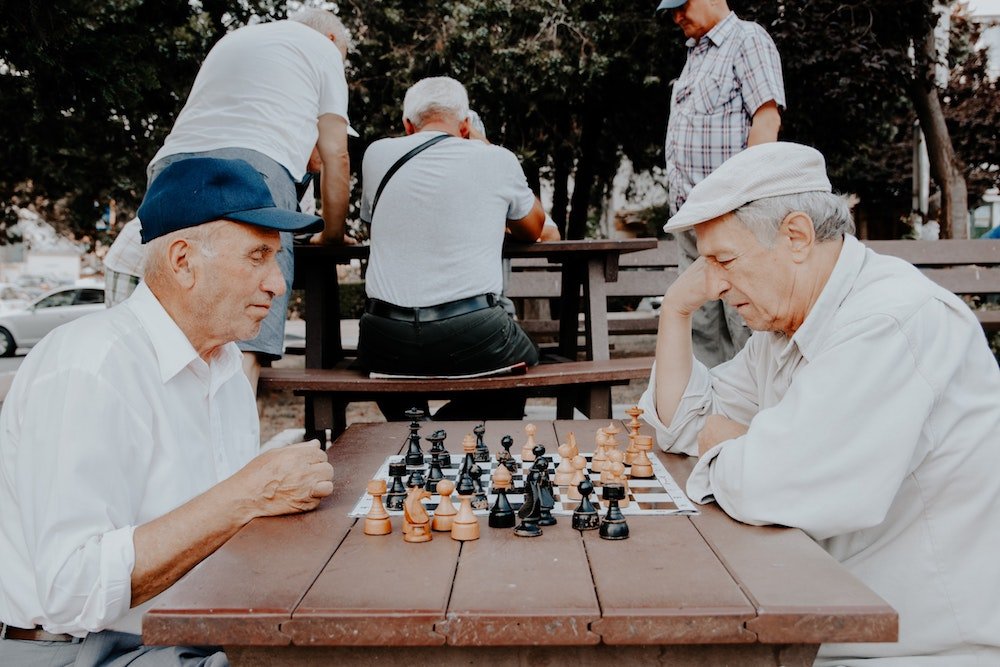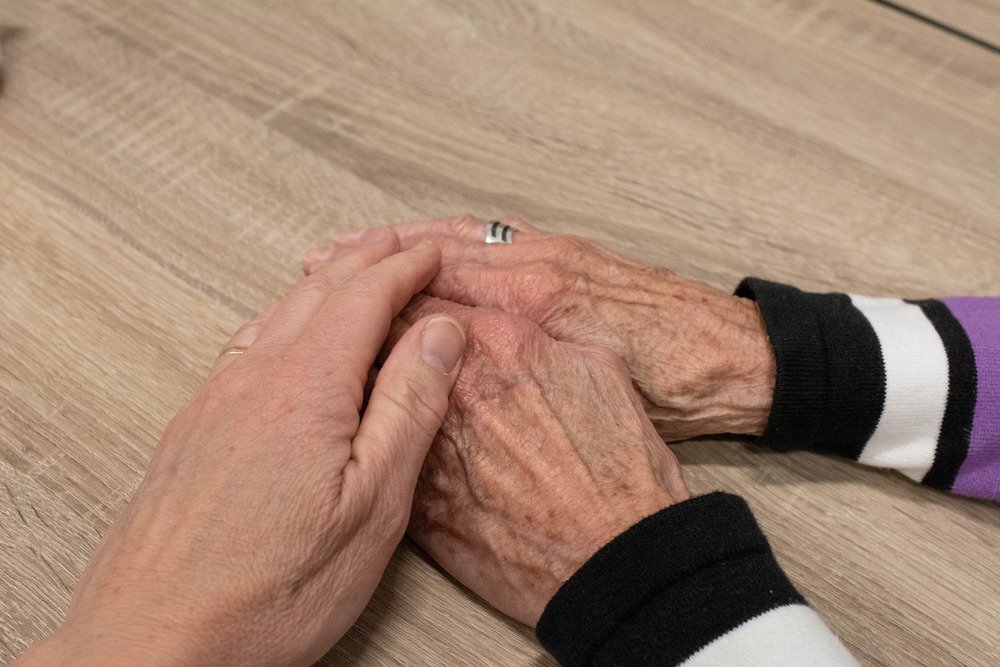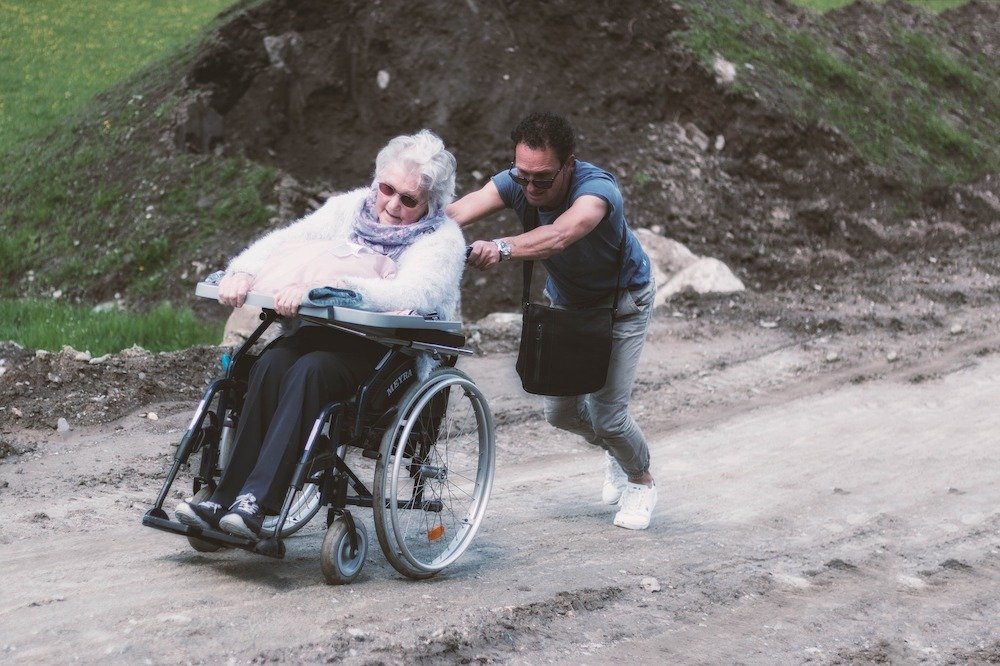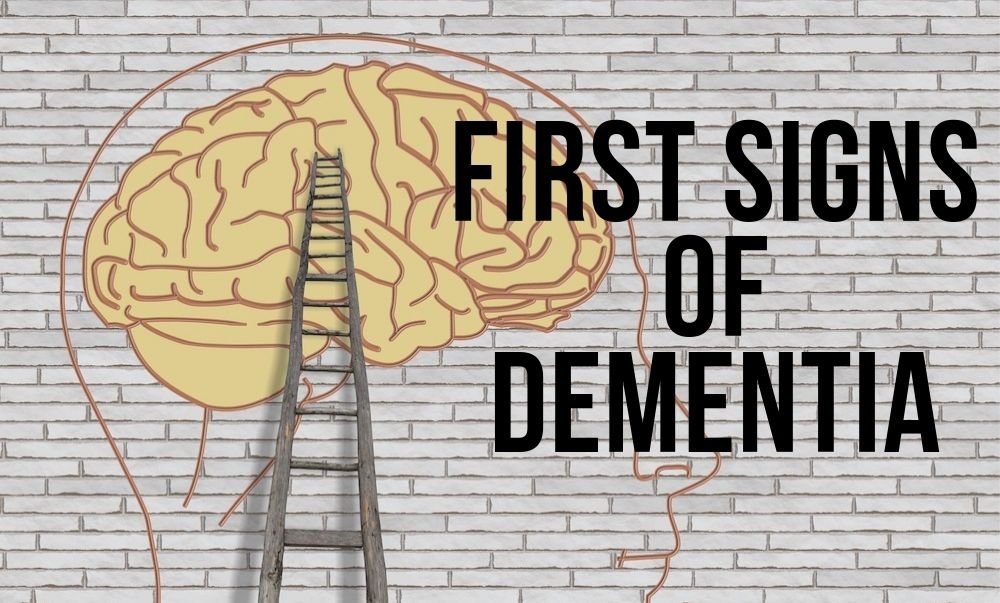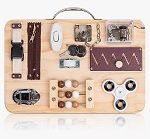You must not ignore changes in an older adult and these signs of Alzheimer’s will help you pay attention. Instead of being lost and wondering what to do next, first skim through the different signs and go from there.
Bear in mind, if they forget a name or where they put their keys every once in a while does not necessarily mean they have dementia or Alzheimer’s disease.
However, if it happens repeatedly, it might already be a sign of the condition.
Once you are fully aware of the most common signs, you will easily recognize changes and act accordingly.
Alzheimer’s disease (AD) is not something that happens overnight.
It is a brain disorder that keeps evolving over many years. There are numerous different factors that contribute to the development, yet still, no scientist and doctor fully understand its development.
If you notice any of the signs and symptoms appear in your relative or friend, and they keep on repeating, we advise you to see a doctor.
Due to the complexity of the disease, you need to understand the signs vary from person to person.
Also, while it is most common that Alzheimer’s disease develops in the mid-60s, some experience it earlier while others in their 70s and beyond.
In other words, the progression of the condition is person-specific.
Study Signs of Alzheimer’s Disease Carefully
1. Memory Loss

Memory loss is one of the earliest signs of Alzheimer’s and initially, it might seem just like normal age-related forgetfulness.
In the later stages of the disease, it affects the ability to recognize places and people including family and friends. People with Alzheimer’s have a propensity to start wandering in the late afternoons and evenings.
Repetitive movement due to memory challenges is what causes the person to wander around. It poses challenges when they are unable to remember their way back home and they end up putting themselves in dangerous situations.
Memory challenges often lead to losing things, forgetting to keep appointments, and misplacing items or storing them in odd places.
2. Spontaneity/ Poor Judgements

Mood swings and personality changes are some of the signs of Alzheimer’s that are easy to spot. With Alzheimer’s, poor judgment is not only about questionable decisions.
Instead, it is a pattern of unfortunate actions and decisions.
You may find that a person with Alzheimer’s constantly uses vulgar language or can start undressing in public. Most people cannot even recognize danger.
You may find a person with Alzheimer’s constantly putting themselves in harm’s way. For instance, if a person underwent surgery of a broken hip, the doctor may put them on bed rest for a while.
People with Alzheimer’s will not listen to the doctor but will insist on moving around even when it hurts badly.
3. Problems in Completing Daily Tasks

One of the notable changes that affect someone with Alzheimer’s is their inability to see daily tasks to their completion. It includes activities like shaving, cooking, and cleaning which all of a sudden becomes challenging.
A shortened attention span is the reason why someone with Alzheimer’s will start working on a task and move to another activity without completing the first.
The progression of the disease eventually affects a person’s ability to organize their thoughts or think logically.
Another challenge sparked by memory loss is repetitiveness, which causes a person with Alzheimer’s to lose their chain of thought and repeat themselves severally.
4. Trouble Managing Finances

Managing money is a huge problem for people with Alzheimer’s. In fact, it is one of the first noticeable signs of Alzheimer’s.
Solving numerical problems becomes a big challenge. Coupled with memory problems, a person with dementia starts forgetting to pay bills or overpays for items when shopping.
As the disease becomes worse, the individual may not even realize that they can no longer handle money matters. Some will even try and hide financial problems in a bid to protect their independence.
A trustworthy family member or trustee needs to step in and check bank statements as well as other financial records monthly.
This protects the individual with Alzheimer’s from fraud or financial abuse.
5. Aggressive Tendencies

Increased anxiety, might cause someone to lash out aggressively when they feel out of their comfort zone. Often, the anger outbursts might seem out of the blue to onlookers and wildly inappropriate.
Someone with Alzheimer’s will also have problems coping or accepting new situations because they are always worried or restless.
The later stages can spark hallucinations and paranoia, which leads the person with Alzheimer’s to see things that do not exist.
Although no one certainly knows why it happens. Multiple factors can cause aggression. These include poor communication, stress, environmental factors, and physical discomfort.
6. Inability To Grasp New Concepts

As memory loss, entering the moderate stage of Alzheimer’s, it affects the ability to learn.
Difficulty with language is also experienced and a person with the disease often has challenges reading and writing legibly.
Repetitiveness is also experienced when the person might ask a question severally despite receiving an answer.
In the severe stages of the disease, the person with Alzheimer’s might lose their ability to communicate entirely. Other than learning impairments, some individuals with the illness block the information they think they should know.
This is one of the signs of Alzheimer’s that may pave the way, go together with, or follow a burst of other anxiety symptoms and sensations.
7. Over Sleeping

Someone with Alzheimer’s goes through many changes and one of them is tied to sleep. Disruption of the sleep/wake cycle is one of the negative effects of Alzheimer’.
Some individuals will sleep more than usual and this may include taking long naps during the day.
New research from Dr. Matthew Pase from Boston University suggests that sleeping for over nine hours a night is an Alzheimer’s warning sign.
Persons usually become sleepier as the disease progresses. Some people will even sleep during the day and stay awake all night.
Many individuals with Alzheimer’s will also experience sundowning. This is agitated behavior that normally occurs after the sunset.
It may involve yelling out, getting violent or pacing.
8. Weight Loss

Losing weight is a manifestation of Alzheimer’s disease. The medial temporal cortex responsible for memory and feeding behavior is affected at the onset of the illness.
Eating becomes more difficult in the later stages of Alzheimer’s disease.
As the disease progresses, food tends to be less appealing to people who have Alzheimer’s. The primary reason behind this is that the disease dulls the senses of smell and taste contributing to the loss of appetite.
Some individuals will even lose a lot of weight despite eating enough food. People with Alzheimer’s may also struggle to recognize food or beverages; thus, end up not eating because of the damage the illness causes the brain.
9. Skin Infections

It is common for people with Alzheimer’s to pick or scratch their skin because of infections.
One of the signs of Alzheimer’s to look out for is incredibly dry skin that gets irritated and itchy. Use of harsh soaps and other body products can also cause this.
Another reason someone with Alzheimer’s may get skin infections is through pests such as fleas, lice, mites, ringworm, and bedbugs. The individual may also be experiencing allergies that cause scratching and itching.
It is advisable to seek medical treatment as soon as you notice this sign to treat the cause of skin infections fast. This way, the person with Alzheimer’s can live more comfortably.
10. Trouble Swallowing

A person with dementia may struggle to chew and swallow food. Caregivers may misconstrue this sign of Alzheimer’s thinking that the person simply does not like the food on the plate.
Some people simply forget to chew the food and end up holding it in their mouth.
In the later stages of the disease, dysphagia or swallowing difficulties become more prevalent. These can lead to dehydration, weight loss, high fever, belly pain, chest congestion, choking while eating and malnutrition.
Aspiration pneumonia is one of the unfortunate consequences brought about by difficulties in swallowing.
It’s pneumonia that causes the lungs to take in liquids or food instead of air.
11. Recurring Falling and Tripping

Before we even continue if you or anyone else who you know is falling or tripping frequently, you need to tell the doctor about it.
A study showed that the older adults who were falling the most during the research showed early signs of Alzheimer’s disease after they did the brain scans.
Have in mind, it is not a guarantee that someone who is on the floor a lot or simply becomes very clumsy will develop dementia, particularly Alzheimer’s disease.
However, cognitive problems may occur as it is not normal for a healthy human being to misstep and slip very often.
Always watch after yourself and act early enough when you discover something uncommon.
12. Vision Changes

Because the eye and the brain work together, someone with Alzheimer’s may go through vision changes. Different areas of vision may be affected by the elderly generation.
One of them is the inability to detect movement. Persons with the disease may perceive everything around them to be a still photo instead of an ongoing video.
Individuals with Alzheimer’s may also experience limited peripheral vision. They may not be able to see both sides when gazing forward.
This results in intense disorientation where a person may end up bumping into things. Recognizing colors also becomes an obstacle particularly in the violet-blue range.
13. Social Withdrawal

Alzheimer’s can be an isolating and lonely illness. Many people with Alzheimer’s disease spend a lot of time alone and when in the company of others, they do not participate much.
It can lead to withdrawal from family, friends, and a lack of interest in familiar things and surrounding activities.
Persons with AD can start to remove themselves from the things they once loved including work projects and hobbies.
It is also likely that because of all the changes they are facing, they feel ashamed or embarrassed; thus, they do not want to face the world.
At times, a person may become withdrawn because they feel bored or isolated.
14. “Childlike” or Clingy Behaviour

Persons with Alzheimer’s can at one point become totally dependent on another individual. This is where they never want to leave the other person’s side and are constantly shadowing them.
Experts reckon that this mostly happens in the evenings as the day is about to end. This is where an individual with AD starts to feel fearful, worn down and confused.
They follow the person they trust around because they are not sure how long they will be gone if they leave their sight. This is why they do not have a problem following a person everywhere they go even to the bathroom.
15. Seizures

Seizures occur in people with dementia at a high rate. Unprovoked seizures affect a huge percentage of individuals with Alzheimer’s.
It is not yet clear the exact mechanisms that trigger the seizures. The seizures are also not easy to diagnose because the behaviors that the individuals present may mimic those of the illness.
Individuals may go through non-epileptic episodes triggered by confusion and inattention not to be confused with seizures.
Many studies conclude that seizures are uncommon for people with Alzheimer’s, but they do occur more in people with AD than those in the general population. With Alzheimer’s, younger age is also a risk factor.
16. Difficulty Communicating

As Alzheimer’s progresses an individual’s communication and language skills start to diminish. You may be talking to a person and in the middle of the conversation, they suddenly stop because they do not know what to say next.
Vocabulary can be particularly troublesome.
A person may struggle to identify the correct word; thus, end up using the wrong names to refer to things. For instance, an individual may call a house a car. Some individuals also have tendencies to invent new words and phrases.
Others will use one word repetitively. As time goes by, an individual may turn to the use of gestures.

















![12 Warning Signs of Dementia [Common] 2023 signs of dementia](https://readementia.com/wp-content/uploads/2019/04/signs-of-dementia.jpg)

























